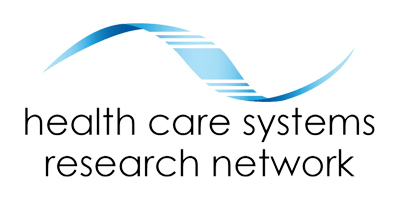Vaccine Safety Datalink
Overview
The Vaccine Safety Datalink (VSD) is recognized as the primary mechanism for population-based evaluations of vaccine safety in the United States. The objectives of the Vaccine Safety Datalink are to conduct population-based research on immunization safety questions; evaluate immunization safety hypotheses that arise from medical literature, passive surveillance systems, adjustments to immunization schedules, and introduction of new vaccines; guide national immunization policy decisions; and partner with healthcare providers, public health officials, and others to ensure the public has the best available information regarding the risks and benefits of immunization.
Quick Facts
- PI: Frank DeStefano, MD of the CDC Immunization Safety Office
- Funding agency: Centers for Disease Control and Prevention (CDC)
- Year funded: 1990
- Website: https://www.cdc.gov/vaccinesafety/ensuringsafety/monitoring/vsd/index.html

Primary Investigator

Frank DeStefano, MD Director, Immunization Safety Office, CDC
Key Partners & Activities
Participating Health Systems
- Group Health Cooperative, Seattle, WA
- Harvard Pilgrim Health Care, Boston, MA
- HealthPartners, Minneapolis, MN
- Kaiser Permanente Northwest, Portland, OR
- Kaiser Permanente Northern California, Oakland, CA
- Kaiser Permanente Colorado, Denver, CO
- Kaiser Permanente Georgia, Atlanta, GA
- Marshfield Clinic Health System, Marshfield, WI
- Kaiser Permanente Southern California, Pasadena, CA
Unique Capabilities
- The VSD allows for planned immunization safety studies, as well as timely investigations of hypotheses that arise from review of medical literature, reports to theVaccine Adverse Event Reporting System (VAERS), changes in immunization schedules, or the introduction of new vaccines.
- Rapid Cycle Analysis (RCA) is the VSD’s active surveillance system designed to detect possible side effects following vaccination in near real time so the public can be informed quickly of possible risks. The VSD team has used RCA to monitor the safety of several vaccines, including HPV, MMRV, Tdap, annual seasonal influenza (and 2009 H1N1 influenza vaccine), Pentacel, and Kinrix.
- Researchers can access VSD data through the VSD Data Sharing Program and the National Center for Health Statistics.
Selected Accomplishments
The VSD has proven to be a highly effective tool for evaluating immunization safety. Since 1990, investigators from the VSD has published numerous scientific studies on the best ways to use existing immunization safety data. The VSD has addressed the following concerns:
- A study that compares the risk of febrile seizures in children who receive MMRV vaccine versus children who receive MMR and varicella vaccine separately.
- An evaluation of the VSD data to examine the safety of thimerosal-containing vaccines.
- An evaluation of the risk of intussusception following rotavirus vaccine.
- Conducted active surveillance of 2009 H1N1 influenza vaccine.
For more, see theVSD project publications library.
